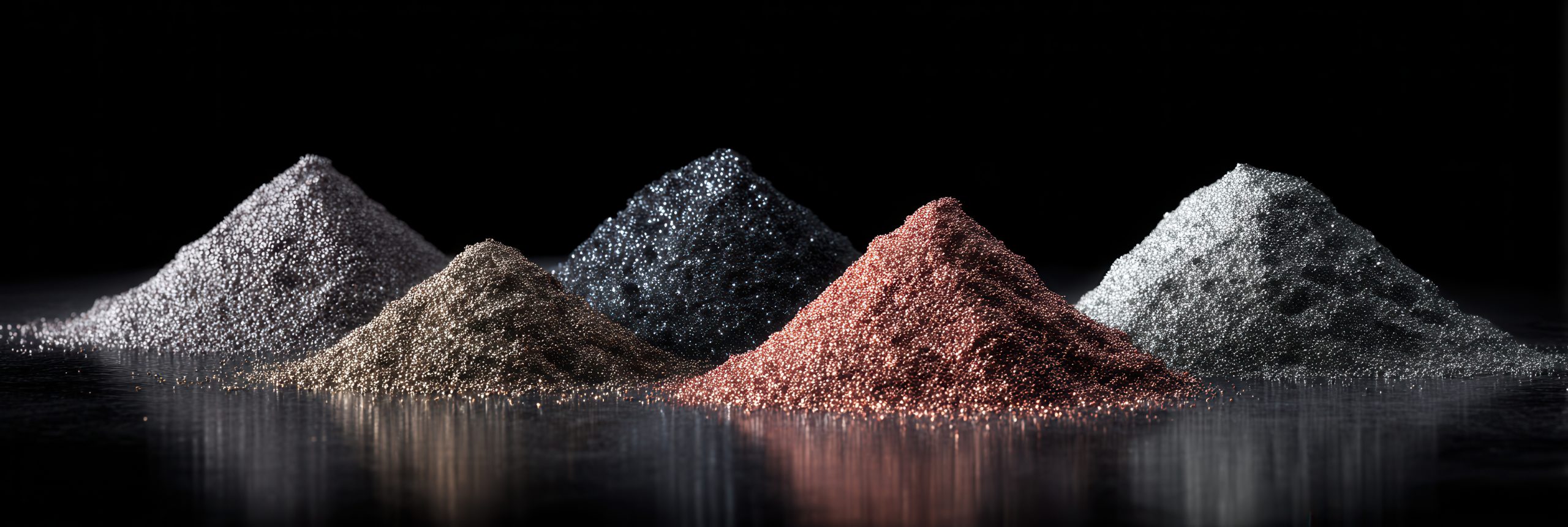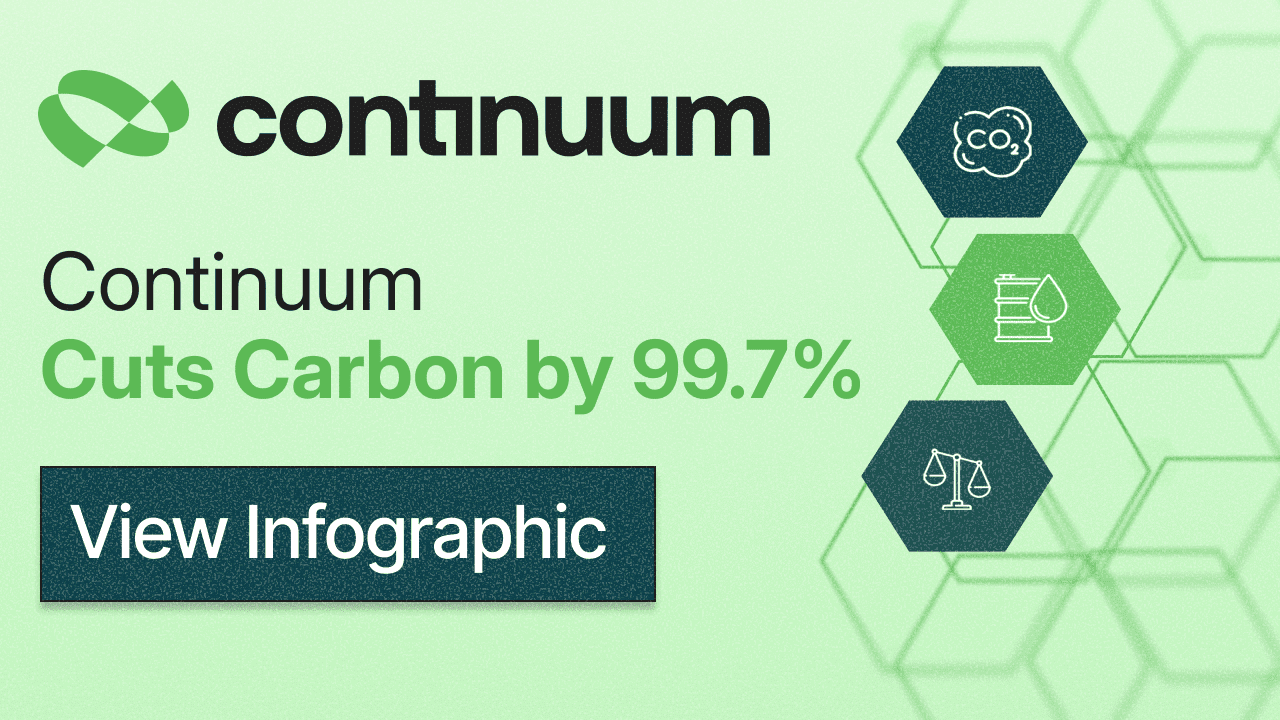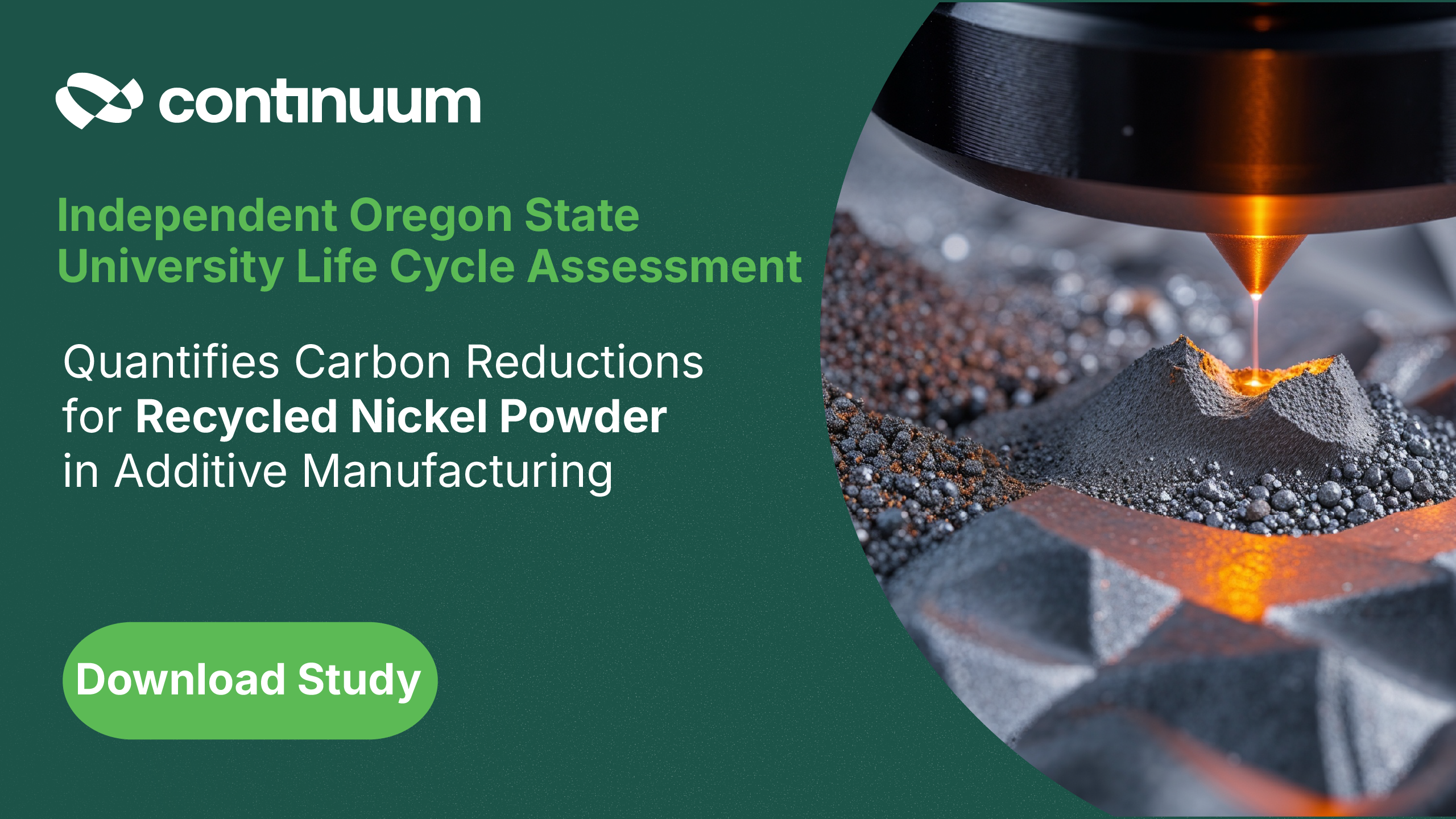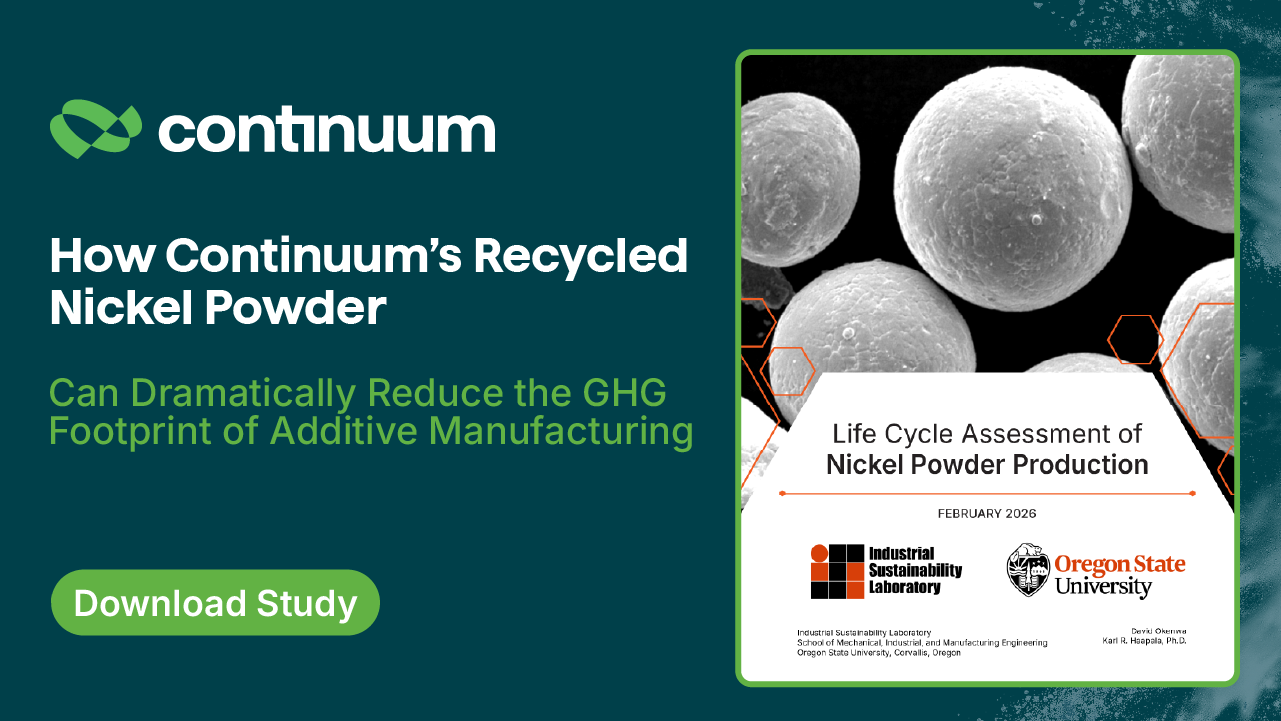Virgin Material Extraction: Challenges and Opportunities for Advanced Manufacturing
Metal powders are the backbone of additive manufacturing, but their origins often trace back to one of the most resource-intensive parts of the global supply chain, virgin material extraction. To understand the value of alternative feedstock sources, such as reclaimed aerospace-grade scrap it’s worth examining the challenges associated with traditional mining and refining and the opportunities that emerge when manufacturers reduce reliance on newly extracted metals.

The Energy and Environmental Costs of Virgin Metals
Producing virgin nickel, cobalt, and titanium requires extensive mining, refining, and smelting. Each stage consumes large amounts of energy, often derived from fossil fuels, while generating greenhouse gas emissions and waste byproducts. For example, extracting one ton of virgin nickel can require more than 200 gigajoules of energy, depending on ore grade and process route. The environmental impact is compounded by tailings management, land use, and water contamination risks.
This energy intensity translates directly into cost. Fluctuations in global energy prices, transportation bottlenecks, and geopolitical instability all affect the final price of virgin metals, which in turn increases volatility for downstream manufacturers who depend on stable input costs.
Supply Chain and Geopolitical Risks
Virgin metal extraction is also concentrated in a limited number of regions, creating vulnerabilities for manufacturers worldwide. Cobalt, for instance, is mined predominantly in the Democratic Republic of Congo, while titanium sponge production is limited to a handful of facilities globally. Political unrest, trade restrictions, or even natural disasters in these regions can quickly disrupt availability. For manufacturers scaling additive manufacturing programs, such disruptions pose a direct threat to continuity of production.
The Role of Powders in Advanced Manufacturing
High-performance alloys like Inconel 718, Titanium, and M247 are critical for aerospace, energy, and defense applications. Producing powders from virgin metals for these alloys compounds the upstream energy burden. At the same time, manufacturers cannot compromise on powder quality. Properties such as particle size distribution, oxygen content, morphology, and flowability must meet strict specifications to ensure part integrity and repeatability.

The challenge, then, is clear: how to maintain reliable access to high-quality powders without reinforcing the environmental and economic drawbacks of virgin material extraction.
Reclaimed Feedstock as an Alternative
This is where reclaimed feedstock provides a critical advantage. Aerospace and industrial machining generate large volumes of high-grade scrap—material that has already passed rigorous certification requirements at the ingot or billet stage. Rather than sending this scrap into traditional recycling streams, it can be transformed directly into new powder feedstock.
At Continuum Powders, the Melt-to-Powder (M2P) process enables precisely this conversion. By taking certified aerospace-grade scrap and re-atomizing it into powders, Continuum provides customers with alloys that meet stringent requirements for additive manufacturing, while reducing dependence on virgin material extraction. Analytical chemistry and controlled atomization ensure powders maintain the performance characteristics expected in critical applications.
Quantifying the Impact
The benefits of reducing virgin extraction are not just theoretical. A Life Cycle Assessment (LCA) conducted by Oregon State University on Continuum’s nickel powders found that reclaimed powder production can reduce greenhouse gas emissions by 99.7% compared to powders produced from virgin material. In practice, this means OEMs can access high-quality powders with a fraction of the environmental footprint, all without compromising on technical performance.
Beyond the Infographic: The Data Behind Continuum’s 99.7% Emissions Reduction
Continuum Powders cuts nickel powder emissions by 99.7%—backed by a third-party LCA. Real data, real impact, and a measurable edge for manufacturers aiming to reduce Scope 3 emissions.
Toward a More Resilient Supply Chain
Shifting away from virgin material extraction offers manufacturers two major advantages:
- Reduced environmental impact, which supports broader corporate sustainability goals.
- Improved supply chain resilience, by decoupling powder availability from the volatility of mining and refining industries.
For industries such as aerospace and energy, where material performance cannot be compromised, this shift represents a rare alignment of environmental responsibility and technical assurance.
Thinking More Strategically About Supply Chain Needs
Virgin material extraction will remain part of the metals supply chain for the foreseeable future. However, as advanced manufacturing grows, relying exclusively on newly mined metals is neither sustainable nor strategically sound. Reclaimed feedstock provides a path forward: maintaining the quality required for critical applications while reducing environmental burden and supply risk.
Continuum Powders sits at the intersection of these challenges and opportunities, enabling manufacturers to access high-quality powders without the drawbacks of virgin material dependence. For customers, the result is more than powder—it’s confidence in both performance and supply.



